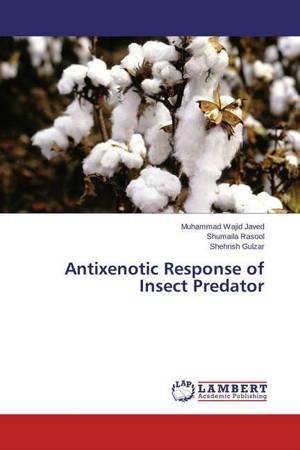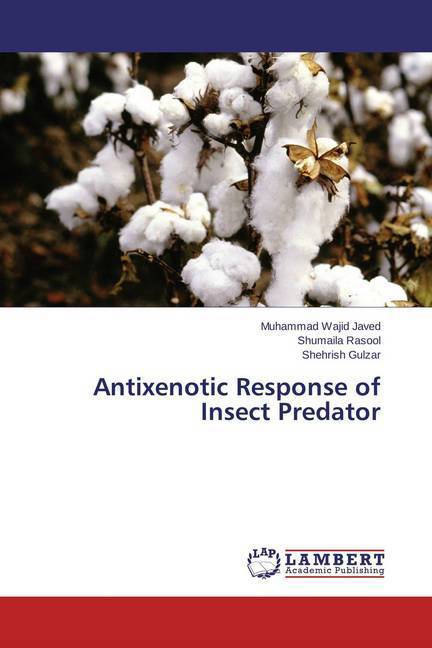
Bedankt voor het vertrouwen het afgelopen jaar! Om jou te bedanken bieden we GRATIS verzending (in België) aan op alles gedurende de hele maand januari.
- Afhalen na 1 uur in een winkel met voorraad
- In januari gratis thuislevering in België
- Ruim aanbod met 7 miljoen producten
Bedankt voor het vertrouwen het afgelopen jaar! Om jou te bedanken bieden we GRATIS verzending (in België) aan op alles gedurende de hele maand januari.
- Afhalen na 1 uur in een winkel met voorraad
- In januari gratis thuislevering in België
- Ruim aanbod met 7 miljoen producten
Zoeken
Antixenotic Response of Insect Predator
Muhammad Wajid Javed, Shumaila Rasool, Shehrish Gulzar
Paperback | Engels
€ 40,95
+ 81 punten
Omschrijving
Cotton and wheat are the major cash crops of Pakistan and mainly cotton-wheat crop rotation is followed in the Punjab province of Pakistan. Aphid (Aphis gossypii) attacks on both of these crops including wheat (Triticum aestivum) and cotton (Gossypium hirsutum). Lady bird beetle Coccinella septempunctata is the local key predator of aphid. Food preference of predator C. septempunctata towards different kinds of aphid and semio-chemical effect of different crops including cotton (Gossypium hirsutum) , wheat (Triticum aestivum), brassica (Brassica oleracea), dumbi siti (Phalaris minor) and oat (Avena sativa) on aphid were studied by using olfacto-meter. From the results it is clear that cotton, wheat and brassica are the natural host plants of aphid but other tested plants are factitious hosts. Preference of C. septempunctata is also more on cotton and wheat aphid followed by brassica crop and brassica aphid, however there is further need to explore the role of semio-chemicals that may affect the food preference of predator.
Specificaties
Betrokkenen
- Auteur(s):
- Uitgeverij:
Inhoud
- Aantal bladzijden:
- 72
- Taal:
- Engels
Eigenschappen
- Productcode (EAN):
- 9783659662577
- Verschijningsdatum:
- 14/01/2015
- Uitvoering:
- Paperback
- Afmetingen:
- 150 mm x 220 mm
- Gewicht:
- 118 g

Alleen bij Standaard Boekhandel
+ 81 punten op je klantenkaart van Standaard Boekhandel
Beoordelingen
We publiceren alleen reviews die voldoen aan de voorwaarden voor reviews. Bekijk onze voorwaarden voor reviews.









